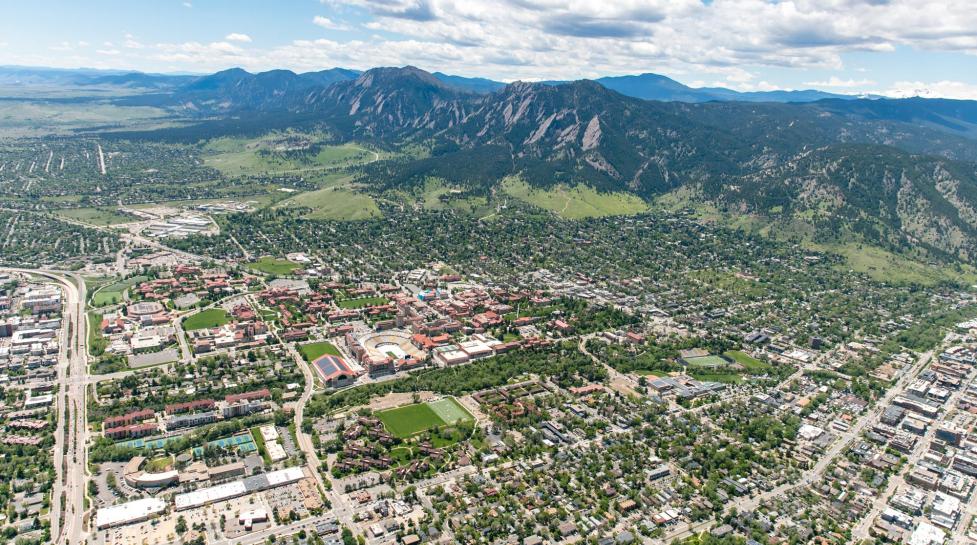Exploration of the Community, Culture, Resilience and Safety Tax
Boulder's Community, Culture, Resilience and Safety (CCRS) Tax is a 0.3% sales and use tax that funds capital infrastructure projects and gives 10% of its revenue to community non-profits for support of capital projects and capacity building.
Boulder community members have a long history of supporting the tax. It was originally approved by voters in 2014 and has been extended by voters twice since then - in 2017 and 2021. The tax is currently set to expire in 2036, though there is a ballot measure on the horizon for 2025 to make it permanent.
This tax plays a key role in addressing underfunded city services in areas our community counts on, like parks and recreation, transportation maintenance and public safety, and is being considered for indefinite extension on the ballot this November as part of the city’s Long-Term Financial Strategy.
Capital Projects: Strengthening our City
Capital improvement, enhancements and maintenance refer to major, long-lasting investments in public infrastructure and facilities. These are typically one-time expenses to create or enhance physical assets that are crucial to our community - things like roads and bridges, public safety facilities and recreation centers.
The CCRS tax funds city capital projects and the maintenance to take care of them. It also funds community non-profits that serve the Boulder community. These are core facets of local government and are essential to community health and wellbeing.
The tax has funded key city projects such as the replacement of Fire Stations 2 and 4, multi-modal transportation projects on 30th Street and 28th Street, critical bridge replacements such as Central Avenue Bridge and Violet Bridge (part of the Primos Park development), traffic signal upgrades, streetlight acquisition and public safety alert enhancements.
The city also leveraged this funding to award about $3.8 million to local non-profits, including the YWCA, Museum of Boulder, Out Boulder County, All Roads Shelter and the Jewish Community Center, for capital maintenance, renovations, construction and debt reduction.
Indefinite Extension
If the tax were to be extended indefinitely by voters, the funds collected would help the city better plan for the future of unfunded capital projects and services, including but not limited to:
- Roads, paths, bike lane and sidewalk enhancements
- Critical bridge replacements
- Snow and ice response
- Recreation center renovations and replacements
- Parks and playground refurbishments
- Fire and police station renovation and replacement
- Open space trail and trailhead improvements
Permanent extension of the tax received initial support from the community, with 64% saying they would be likely to vote for a ballot measure extending the tax indefinitely. This input was received through a randomized and statistically valid survey conducted earlier this year to better understand concerns and opinions about the potential 2025 ballot measure.
The city is also putting forward a ballot measure for voter approval to fund capital improvement projects by increasing its debt capacity. This debt would then be repaid with dollars collected through the CCRS tax in the future. If this measure passes, it will enable the city to accelerate future projects, save money on the increasing cost of construction and improve infrastructure and services for the community today.
Boulder voters will likely have the opportunity to weigh in on these ballot measure this November. Learn more about voting and elections in the City of Boulder.
Closing the Gap
The city recently announced a budget shortfall of about $10 million due to flattening revenue from major sources such as sales and use and property tax, legislative impacts and increasing costs, along with several cost-saving measures to help close this gap in the short term.
In the long term, building a financial strategy to achieve more spending flexibility and identify new revenue sources to address emerging needs and provide the level of service our community desires is a top city priority. The CCRS tax extension is just one of the potential ways being considered to help ensure a stable financial future for our community.
This is the third in a series of blogposts about the city’s Long-Term Financial Strategy.
Stay Informed
The City of Boulder E-newsletter is a bimonthly roundup of city news, including information on city’s long-term financial strategy initiative.
